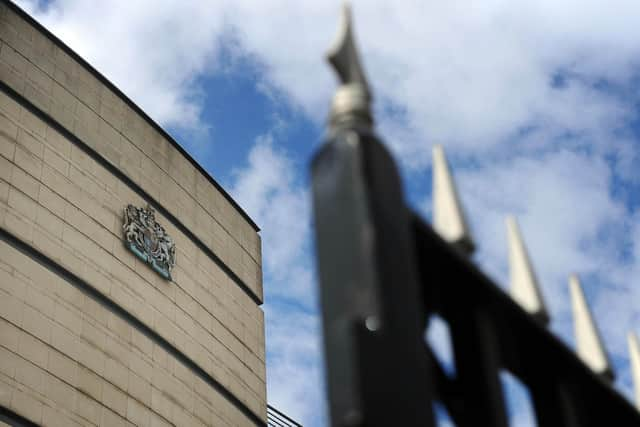Plot to assassinate gangster Robbie Lawlor ‘devised three weeks before he was shot dead’


Patrick Teer, 46, is accused of taking part in events surrounding the Irish gangster’s assassination in north Belfast.
Refusing his latest application for bail, a judge cited allegations that the killing was part of a long-running drugs feud involving multiple gun and bomb attacks.
Advertisement
Hide AdAdvertisement
Hide AdMr Justice Shaw also highlighted prosecution contentions that Teer is a “trusted member” of an underworld outfit operating across the British Isles and beyond.


Lawlor was killed in broad daylight outside a house at Etna Drive in the Ardoyne district on April 4 last year. A gunman emerged from the property and opened fire, shooting the 36-year-old dead.
The murder is connected to a drugs dispute among organised crime gangs with connections to Drogheda, Dublin, Sligo and beyond Ireland, the court heard.
Prosecutors said there have been four killings linked to the feud.
Advertisement
Hide AdAdvertisement
Hide AdNeither Teer, of Thornberry Hill in Belfast, nor 37-year-old co-accused Adrian Holland, from Etna Drive, are suspected of being the gunman. Instead, they have been charged as part of a joint enterprise.
Mr Justice Shaw was told the plot to lure Lawlor to his death was devised nearly three weeks earlier.
According to the prosecution Holland travelled to Sligo and spoke to an unnamed international drug dealer at a hotel on March 16. It was claimed that Teer paid for his co-accused’s trip.
Disputing the strength of evidence, defence lawyers insisted there is nothing to suggest Teer attended any meeting in Sligo.
Advertisement
Hide AdAdvertisement
Hide AdHis employer and brother both gave evidence to support the bail application, with the court also told that £238,000 in sureties and property deeds can be lodged.
But ruling that Teer must remain in custody, the judge held that those assurances “do not deal adequately with the character of the organised crime group said to be involved and the risks that arise as a result”